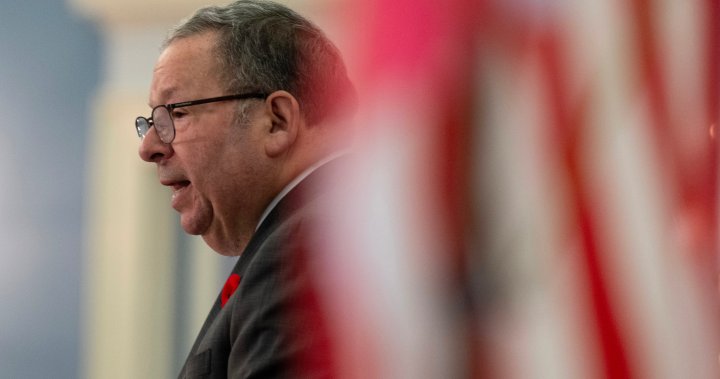The U.S. ambassador to Canada, David Cohen, believes that Canadians should not judge the quality of America’s democracy based on who wins the presidency, whether it be Kamala Harris or Donald Trump. According to Cohen, America has survived challenging elections in the past and remains a prominent player on the world stage. He emphasizes that the quality of democracy should be judged based on how people govern, rather than on campaign rhetoric or the outcome of a single election. With Canada closely watching for potential economic protectionism from the United States in the next four years, concerns also arise about how an upcoming review of North American free trade could be impacted by a Trump or Harris administration.
Canada will be particularly interested in whether Harris or Trump can address rising house prices and boost homebuilding, as well as how these ideas could potentially be implemented in Canada. Harris’s domestic proposals, especially those related to tax credits, would require approval from Congress, highlighting the importance of Democratic control in enacting her vision. On the other hand, Trump’s blanket tariffs, which could affect trade with Canada, may not require congressional approval. Economists warn that tariffs can lead to higher prices for consumers as companies seek to offset the increased cost of importing goods, which has implications for the $3.6 billion worth of goods and services that cross the U.S.-Canada border daily.
The Canadian Chamber of Commerce has expressed concerns about potential disruptions to the cross-border supply chain, as any issues could disproportionately impact small businesses in Canada and the overall economy. Jasmin Guenette, vice-president of national affairs at the Canadian Federation of Independent Business, underscored the importance of maintaining the strong trade relationship between the U.S. and Canada, regardless of who wins the presidential election. Cohen also noted that while there has been talk of increasing U.S. protectionism, the trade relationship between the two countries is robust and likely to continue regardless of the outcome of the election.
Overall, the future of U.S.-Canada relations will depend on the policies and actions of the next U.S. president, whether it be Harris or Trump. The outcome of the election will have implications for trade, economics, and potentially even domestic policies in Canada, as both countries are closely interconnected due to their strong bilateral relationship. As Canadians observe the election results and await the transition of power in the United States, they will be monitoring how the new administration handles important issues such as economic protectionism, trade agreements, and potential changes to domestic policies that could impact Canada. Cohen’s reassurance that the U.S.-Canada trade relationship is likely to remain strong despite any potential changes in leadership provides some comfort and stability in uncertain times.


